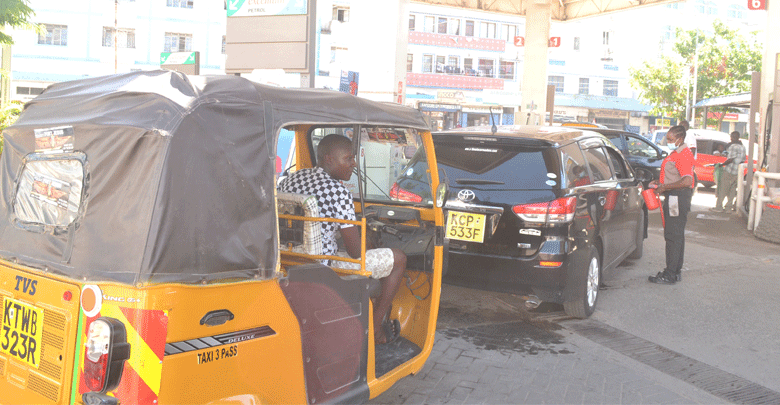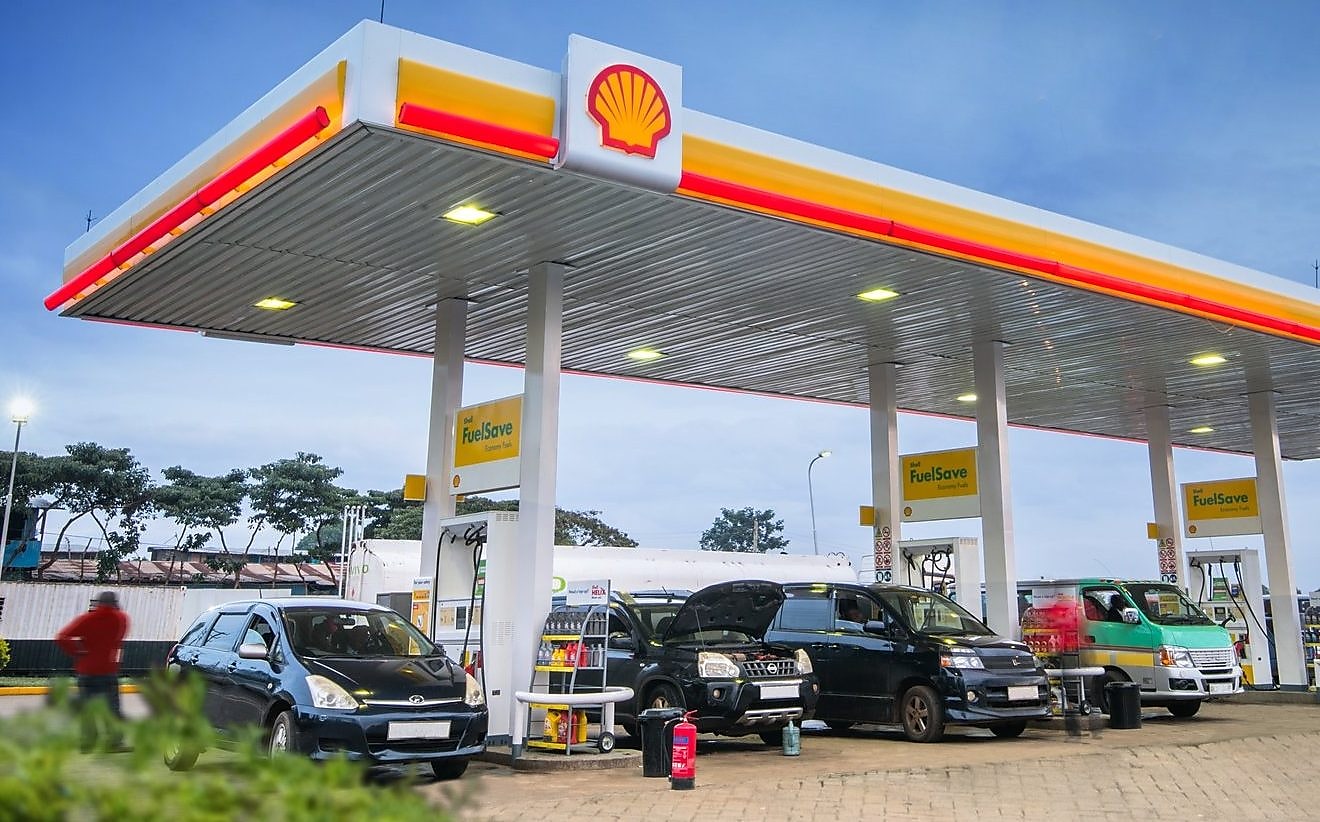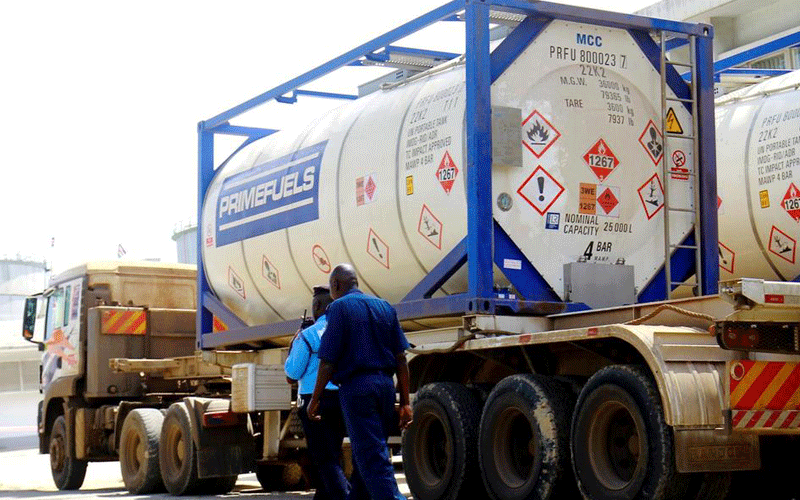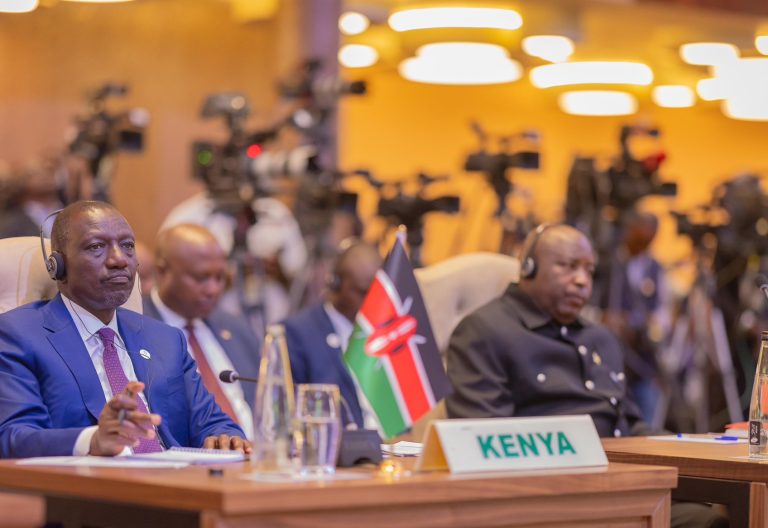Surprise as Govt pulls back on plan to increase fuel prices

Noel Wandera and Harrison Kivisu
The government has shelved plans to increase the price of fuel for the next 30 days even as the cost remains the highest since 2018 with the regulator linking the new rates to slow recovery in world crude oil prices.
The Energy and Petroleum Regulatory Authority (Epra) maintained fuel prices to last month’s rates with super petrol, diesel and kerosene remaining unchanged but did not give any reason for retaining retail cost.
In what analysts interpret as an attempt to forestall a possible backlash, the regulator said a litre of petrol will continue trading at Sh122.81 in Nairobi, diesel Sh107.66 and a litre of kerosene to retail at Sh97.85 for the one month to May 14, 2020.
Interestingly, the landed cost of petrol, which informs the estimates, surged 9.27 per cent to $491.50 per cubic metre compared to $449.82 in February, while a cubic metre of diesel and kerosene also rose by 4.77 and 7.29 per cent, respectively.
“In the period under review, the prices for super petrol, diesel and kerosene remain unchanged from the March 2021 pump prices,” said Daniel Bargoria, the Epra acting Director General.
Bargoria said the Free on Board (FOB) price of Murban crude oil lifted in March 2021 was posted at $65.16 per barrel, up 5.76 per cent from $61.61 per barrel in February.
Steady pump proces
Churchill Ogutu, the head of research at Genghis Capital, said the steady fuel pump prices in the latest review is on account of reduction in supplier margins.
“We wait to see how suppliers react to this or if there was some consensus in place with suppliers prior to the review,” said Ogutu.
Nevertheless, the consumer, especially the public transport sector and farmers, will be comforted with the unchanged prices.
Kenyans had witnessed an increase in fuel prices since the turn of the year, with the transport and agricultural sectors the hardest hit.
Simon Kimutai, the chairman of the Matatu Owners Association, earlier told People Daily that if the trend continued, the PSV sector would grind to a halt.
Insult to injury
“If the government increases the fuel prices, it will be like adding insult to an injury. Social distancing threw out 40 per cent of our revenues, which was not even our profit,” said Kimutai.
He that said even if the prices were increased, it would make no sense raising fares, because Kenyan’s were fatigued.
Instead, to cool the nerves of players in his sector and the anxiety by commuters every month, he said the government should consider zero-rating fuel for Public Service Vehicles (PSVs), while the county governments should waive parking levies.
According to Kimutai, operators were unable to finance their operating costs, let alone buy new vehicles, a position Rita Kavashe, the Managing Director of Isuzu East Africa agreed with.
“It is true the PSV industry has been adversely affected. We had hoped there would be quite a bit of purchases in fleet replacement.
On the contrary, what we are seeing is the fleets reduction because they are making minimal returns.
Some of them are parked as they wait for the situation to normalise,” said Kavashe, adding that the company’s PSV business is now less than 10 per cent.
Yesterday’s move will also come as a relief for farmers, who complained of high prices of inputs and fuel.
“No one is suffering like farmers,” said Steve Kibor, a Uasin Gishu-based wheat farmer owning 800 acres of land, who said tilling an acre of land currently costs him Sh15 more per litre because of the price of diesel.
The rising cost of fuel in Kenya is also pushing long distance cargo transporters to opt for fuelling vehicles in neighbouring countries where fuel cost is lower.
According to Kenya Transporters Association of Kenya (KTA) chief executive Dennis Ombok, the cost of fuel is unbearable and its members are now shifting to neighbouring countries for cheaper products.
“Our members are moving to other countries because of the rising cost of fuel. The cost of living is becoming unbearable, and businesses are feeling the heat, especially transporters,” said Ombok.
In Uganda, for example, Dan Omotto, a long-distance truck driver with Asis Logistics Company which transports goods to Kampala, says the cost of diesel per litre is 10 shillings lower compared to Kenya.
“We feel good fuelling in Uganda because the price of diesel is low. You cannot compare fuel prices in Kenya and Uganda,” said Omotto
In Southern Sudan, a litre of petrol is Sh30 lower compared to Nairobi.
“A litre of diesel in Southern Sudan is Sh90 compared to Sh105 in Kenya,” said Dalmas Nzai, a transit driver with Gateway Marine Services transit firm to Southern Sudan.
A spot check by People Daily in Mombasa established that the cost of food products had significantly increased in the past two months, with Kenyans left to forgo meals so as to sustain themselves and their families.














